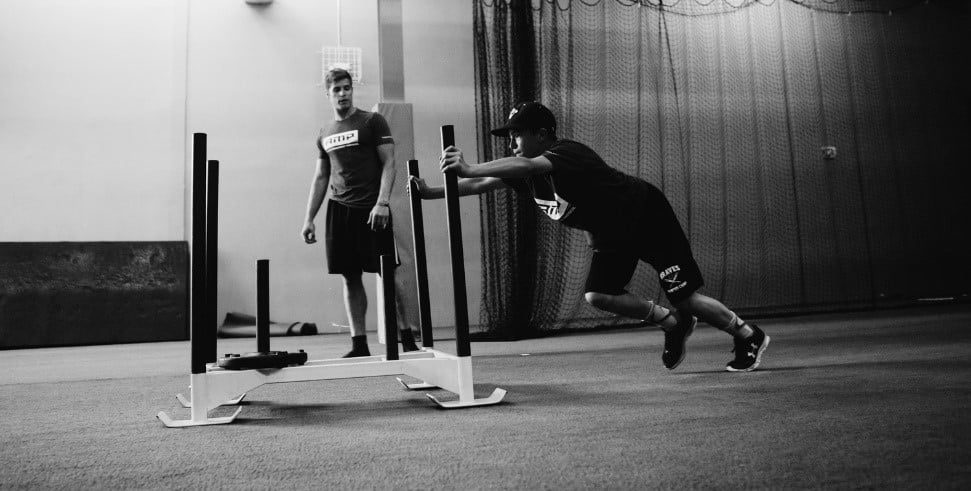Dominica Nemec, Assistant Account Specialist
Up until the day I walked across the stage at my university to receive my degree, I had been a competitive athlete – tennis player, if you’re curious. During my early years I dreamt of nothing other than being the best. It wasn’t until university that I began to realize my priorities and interests were shifting. I knew I wanted to pursue a career in public relations and was doing well academically in the field, but what I didn’t realize (until much later) that I had an advantage many of my classmates didn’t – I was an athlete! Being an athlete provides you with specific tools that can set you up for success in your chosen career, particularly a fast-paced one like PR. Here’s why being an experienced competitor gives you that competitive edge.
Growing up as a high performance athlete comes with its ups and downs. The ups: peak physical fitness, the ability to eat whatever you want in large quantities, not needing an excuse to wear workout gear all day every day and the feeling of invincibility that comes with being a champion. The downs: permanent exhaustion and constant state of hunger, not being able to pull jeans up past your knees, the complete lack of any sort of social life and the constant pressure of needing to consistently improve.
For teenage athletes with big dreams of rising to the top, these are common concerns. However, while transitioning from an athletic career to a professional one can seem extremely daunting, these idealists quickly learn they are already equipped with certain tools and skills that can help them excel in the boardroom the same way they did on the court. Being able to apply these skills makes them ideal for fast-paced work environments such as PR agencies. Here are the top five reasons athletes make excellent PR professionals:
When your day consists of waking at the crack of dawn for workouts, a full day of classes, three hours of afternoon practice, physical rehabilitation for injuries and an evening spent completing homework, you learn to utilize every waking moment. You condense eight hours of studying to two and write term papers in the blink of an eye. Creating a list of priorities and what needs to be achieved is a daily practice. All sports require some level of strategic thinking – this, coupled with the limited number of hours in a day, allows athletes to recognize what needs to be executed, when, how long it will take and what level of effort and attention it needs. Replace workouts with meetings, classes with calls and practice with deliverables and you’re moving straight from the court to the office.
Knowing when to say when –
As PR professionals, we’re all perfectionists on some level. Being your own harshest critic means a press release is never as polished as you’d like it to be and the presentation could always use a few more details. Same goes for athletes – the serve could use some perfecting and maybe if you put in a few more practice sprints your time will improve slightly. However, when game day rolls around it’s go time and you better be confident in what you have to bring to the playing field. As an athlete, being so limited on time allows you to excel at creating your best work and paying attention to detail in a timely manner, but also knowing when to wrap it up and yell “DONE!”
This one should come as no surprise. Pressure is a commonly used word in any athlete’s vocabulary – the expectation to perform at a certain level while excelling in the classroom and all of the other responsibilities that come with the role can be overwhelming. However, there are two important skills all peak athletes must learn to master if they want to maintain their sanity: stress management and perspective. Being able to deal with pressure does not equate to a lack of stress, in fact quite the opposite – stress is a major factor in athletics. However, the near constant pressure athletes feel allows them to channel that stress into productive energy, a skill they learn to apply in multiple scenarios. They’re also able to put things into perspective – a single loss does not break a career and a stressful week at work will eventually pass. That’s why instead of crumbling under the pressure of imminent deadlines and copious amounts of work, athletes are able to stay collected and deliver.
Always a team player –
It doesn’t matter if you played singles in tennis or defense in football, all athletes know the importance of a cohesive team. While it’s not always easy (try grouping ten girls in their late teens/early twenties together and force them to work as a unit on a collegiate tennis team), you learn to step up to the plate to lead when you’re needed and lean on your teammates for support when there is too much being asked of you. This is particularly important in a work environment such as a PR agency, where teamwork is essential to the workload. As important as it is to be indispensable to a team that needs you, you must trust others to do the same.
5. Goal Oriented –
Winning isn’t everything, but it sure is an excellent motivator. Crossing the finish line first may be the end game, but every athlete knows the planning, goal setting and work is what is going to get them there. This desire to not only be the best but consistently improve doesn’t dwindle once the equipment is stored away for good. Athletes are and always will be driven by results in every aspect of their life, so you can rely on them to not only get the job done, but get it done right. Also, that age-old saying “you learn more from your losses than wins,” is not wrong – we can’t win all the time, but what we can do is lose gracefully and continually grow from those losses. Athletes know how to learn from mistakes, both on and off the court.
There you have it! Now, this is not to say that only athletes make excellent employees and PR professionals – not by a long shot – but they certainly have a leg up when it comes to being integrated into a fast-paced work environment for the first time. Why? Because they’ve already experienced it in one way or another!
Dominica Nemec is an Assistant Account Specialist at Brookline Public Relations. She is at her best when coming up with creative ways to tell a story and is a self-professed grammar geek. She has helped multiple brands tell their stories and build their reputations through media relations, digital communication and event planning. When not doing her PR thing, she can be found staying active and teaching spin classes – you can take the girl out of athletics but you can’t take the athlete out of the girl!



